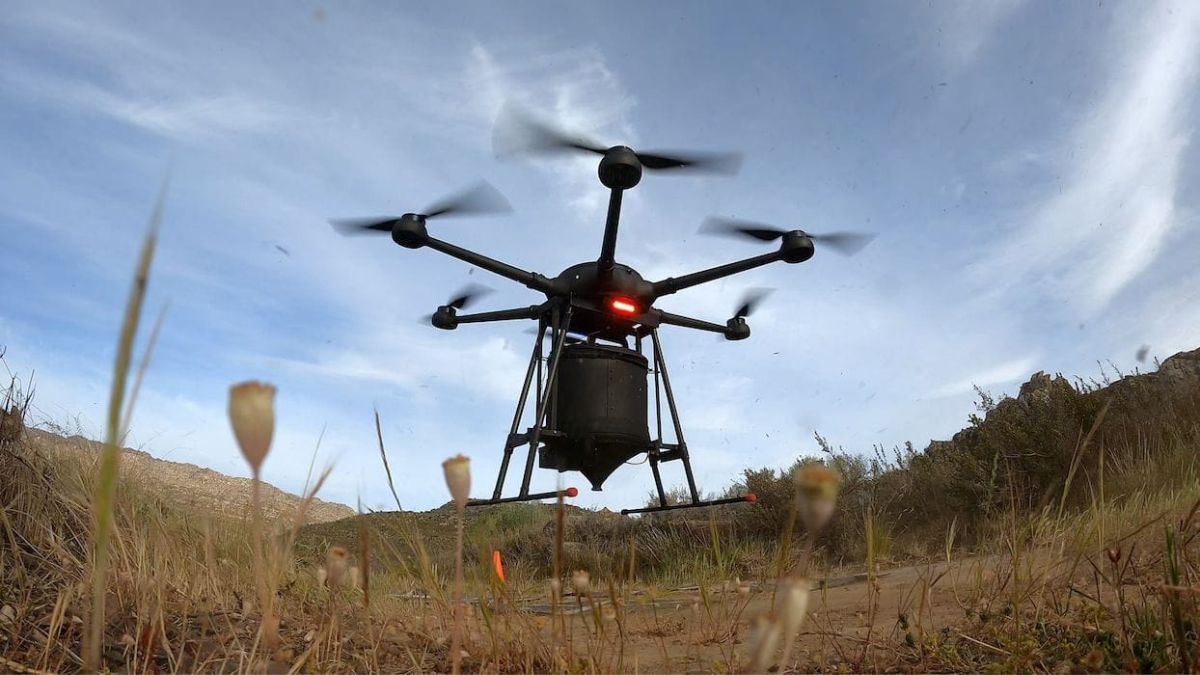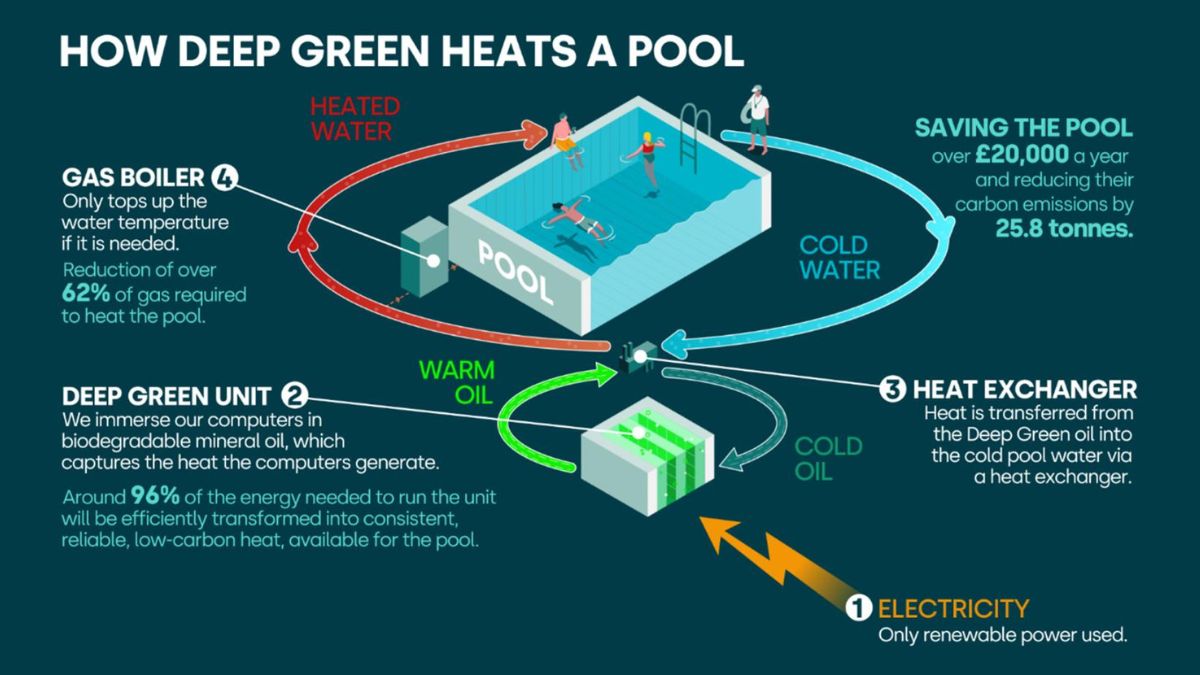
Image Credit: Twitter According to a news relea...
news-extra-space

 Image Credit: The Next Wave
Deep Green is planning to install its system for more than seven data centers. And it will go for a big move within this year for several locations as reported.
There are so many like Deep Green.
The French company Qarnot and the English company Heata, which claims to recycle data center heat to heat water for those in need, are two of the many businesses attempting to reuse data center heat. Deep Green is one of these businesses. For years, other data centers, including some owned by IBM, have investigated using data-center waste heat. Additionally, some US businesses sell the waste heat from data centers, and some areas already use it to stay warm. Notably, the tech behemoth Microsoft revealed plans to supply some regions of Finland with waste heat from a data center it is constructing there last year.
Data-center heat redistribution is still a niche market, despite the enormous amount of energy that data centers worldwide consume. This is partially due to the expenses and difficulties data center operators face in distributing heat, such as the price of joining a regional district heating system. Depending on the kind of technologies employed, heat recycling may also be more difficult. According to Oslo-based IT company CloudandHeat, heat from data centers with water cooling, which many businesses have used to lower heat generation and boost performance, can be more difficult to recycle.
The idea of requiring data centers to provide heat to nearby homes was first brought up in Germany earlier this year, but Bloomberg reports that the idea has run into opposition due to a lack of enthusiasm on the part of the potential recipients. Basically, waste heat cannot reach a hot enough temperature on its own, necessitating the use of heat pumps, which have separate financial and energy costs.
“Data center owners are generally eager and willing to donate their waste heat. Finding someone who can utilize that heat wisely is the challenge in this situation,” according to Ralph Hintemann, senior researcher at data-center advocacy group Borderstep, in a statement to Bloomberg.
The residents of a 1,300-apartment residential complex in Germany will have no choice but to accept at least some of their heat from a server farm nearby, according to Bloomberg. This will result in carbon emissions savings equal to taking 200 combustion engine vehicles off the road. The data center, Telehouse Deutschland GmbH, is just 500 meters from the planned community, making it physically possible for this project, which is still in the planning stages, to be completed.
By placing its data centers where heat is desired, Deep Green, like other digital boiler companies such as Qarnot and Heata, addresses this problem. Giving away the heat for free makes Deep Green stand out even more, making it harder to refuse. Moreover, Deep Green is currently focusing on a sector of the economy that could benefit it. Since the COVID-19 pandemic, neighborhood swimming pools in the UK have been closing quickly due to rising energy prices (Exmouth Leisure Centre anticipates an increase in energy costs of $100,000 this year).
Meanwhile, Heata claims that its digital boilers can save UK homes experiencing "fuel poverty" up to £200 annually and one ton of carbon emissions. For a year, it is currently offering trial homes free use of digital boilers for heating water but hosts eventually need to pay.
Image Credit: The Next Wave
Deep Green is planning to install its system for more than seven data centers. And it will go for a big move within this year for several locations as reported.
There are so many like Deep Green.
The French company Qarnot and the English company Heata, which claims to recycle data center heat to heat water for those in need, are two of the many businesses attempting to reuse data center heat. Deep Green is one of these businesses. For years, other data centers, including some owned by IBM, have investigated using data-center waste heat. Additionally, some US businesses sell the waste heat from data centers, and some areas already use it to stay warm. Notably, the tech behemoth Microsoft revealed plans to supply some regions of Finland with waste heat from a data center it is constructing there last year.
Data-center heat redistribution is still a niche market, despite the enormous amount of energy that data centers worldwide consume. This is partially due to the expenses and difficulties data center operators face in distributing heat, such as the price of joining a regional district heating system. Depending on the kind of technologies employed, heat recycling may also be more difficult. According to Oslo-based IT company CloudandHeat, heat from data centers with water cooling, which many businesses have used to lower heat generation and boost performance, can be more difficult to recycle.
The idea of requiring data centers to provide heat to nearby homes was first brought up in Germany earlier this year, but Bloomberg reports that the idea has run into opposition due to a lack of enthusiasm on the part of the potential recipients. Basically, waste heat cannot reach a hot enough temperature on its own, necessitating the use of heat pumps, which have separate financial and energy costs.
“Data center owners are generally eager and willing to donate their waste heat. Finding someone who can utilize that heat wisely is the challenge in this situation,” according to Ralph Hintemann, senior researcher at data-center advocacy group Borderstep, in a statement to Bloomberg.
The residents of a 1,300-apartment residential complex in Germany will have no choice but to accept at least some of their heat from a server farm nearby, according to Bloomberg. This will result in carbon emissions savings equal to taking 200 combustion engine vehicles off the road. The data center, Telehouse Deutschland GmbH, is just 500 meters from the planned community, making it physically possible for this project, which is still in the planning stages, to be completed.
By placing its data centers where heat is desired, Deep Green, like other digital boiler companies such as Qarnot and Heata, addresses this problem. Giving away the heat for free makes Deep Green stand out even more, making it harder to refuse. Moreover, Deep Green is currently focusing on a sector of the economy that could benefit it. Since the COVID-19 pandemic, neighborhood swimming pools in the UK have been closing quickly due to rising energy prices (Exmouth Leisure Centre anticipates an increase in energy costs of $100,000 this year).
Meanwhile, Heata claims that its digital boilers can save UK homes experiencing "fuel poverty" up to £200 annually and one ton of carbon emissions. For a year, it is currently offering trial homes free use of digital boilers for heating water but hosts eventually need to pay.
 Image Credit: Facebook
Making use of users who are willing to be more flexible with their heating and finding methods to reuse data center heat without having to worry about long distances seem to be promising ways to increase the popularity of data center heat reuse.
Relying on a startup for something as necessary as heat or lights can be frightening. But the world's insatiable desire for computing and data necessitates is fueling the ongoing research. We hope that it might come up with a better solution in near future.
Image Credit: Facebook
Making use of users who are willing to be more flexible with their heating and finding methods to reuse data center heat without having to worry about long distances seem to be promising ways to increase the popularity of data center heat reuse.
Relying on a startup for something as necessary as heat or lights can be frightening. But the world's insatiable desire for computing and data necessitates is fueling the ongoing research. We hope that it might come up with a better solution in near future.
Leave a Reply






